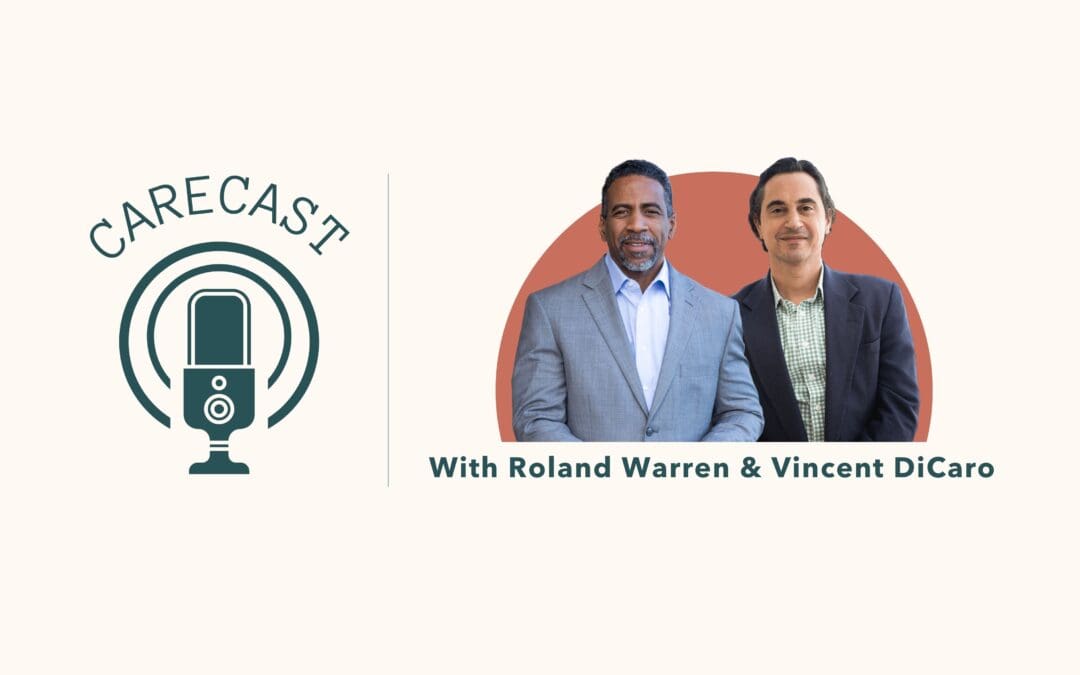Whales and dolphins have officially been recognized as legal persons in a new treaty formed by Pacific indigenous leaders. A group of leaders from the Pacific islands essentially recognize something interesting and important for the pro-life movement. They recognize that to protect a vulnerable group, and in this case, whales and dolphins, establishing them as persons was the key to getting them the legal protections they needed.
In the newest CareCast episode, Roland Warren, President and CEO of Care Net, and Vincent DiCaro, Care Net’s Chief Outreach Officer, discuss whether this is a strategy the pro-life movement should follow. Listen in on what Roland and Vince have for us on the newest CareCast episode.
Listen to the newest CareCast: Getting to the Why of the Pro-Life Movement
The above link sends you to SoundCloud, you can also find this episode on iTunes and Spotify.
In this compelling episode of CareCast, hosts Roland and Vince delve into a groundbreaking treaty by Pacific indigenous leaders recognizing whales and dolphins as legal persons. They explore the implications of this for the pro-life movement, arguing that the strategy of establishing personhood is crucial for protecting the unborn. Listen in as they discuss the moral, legal, and strategic aspects of this approach and its potential to shape future pro-life advocacy.
Listen to the entire CareCast episode for these powerful ideas and more:
- “To protect whales and dolphins, establishing them as persons was the key to getting them the legal protections they needed. Does that sound like a strategy that could potentially work for protecting the unborn?”
- This strategy speaks to the why of what makes abortion wrong. If we don’t understand why abortion is wrong””that abortion is killing an innocent human being””then we can’t establish that innocence. An innocent human being is worthy of the protection of all human beings.
- The core of what we should be doing is asserting the personhood of the child in the womb. There’s the moral aspect of what it means to be pro-life and the political aspect of what it means to be pro-life.
Some of the thought-provoking ideas Roland and Vince cover in this episode of CareCast:
1. Personhood and Protection:
- A recent treaty by Pacific indigenous leaders from the Cook Islands, French Polynesia, New Zealand, and Tonga has recognized whales and dolphins as legal persons.
- This recognition is seen as a strategy to provide legal protections for these vulnerable species.
- Roland and Vince draw parallels between this strategy and the pro-life movement’s efforts to protect the unborn by establishing their personhood.
2. Moral and Legal Perspectives:
- The importance of defining the unborn as human beings to argue against abortion effectively.
- The moral perspective: Scripture’s declaration that all humans are created in the image of God.
- The legal perspective: The 14th Amendment’s protections for all persons should extend to the unborn if their personhood is established.
3. History and Strategy:
- Historical parallels with the abolitionist and civil rights movements, emphasize the critical role of personhood in securing rights and protections.
- The current political landscape includes efforts to introduce pro-choice constitutional amendments at the state level and the potential for a federal constitutional amendment.
- The necessity of the pro-life movement to focus on establishing the personhood of the unborn to counteract these pro-choice initiatives.
This episode highlights quite the strategy for the pro-life movement: establishing the personhood of the unborn to secure their legal protections. Roland and Vince’s discussion offers a thought-provoking perspective on how lessons from Pacific indigenous leaders can inform and strengthen pro-life advocacy. Tune in to understand why recognizing the personhood of the unborn is essential and how it can serve as a powerful tool in the fight against abortion. Don’t miss this insightful conversation that bridges moral, legal, and strategic dimensions of the pro-life cause.
Can’t find the podcast?
Here’s your full CareCast episode.
Don’t use SoundCloud? Find this episode on iTunes and Spotify.

